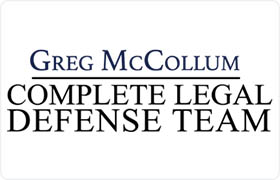Little River Misdemeanor Lawyer, South Carolina
Sponsored Law Firm
-
 x
x

Click For More Info:
-
Greg McCollum Complete Legal Defense Team
1012 38th Avenue North Suite 202 Myrtle Beach, SC 29577» view mapCriminal Defence Law Complete Legal Defense Team
Our goal at the Complete Legal Defense Team is to examine the facts and circumstances completely and help our clients.
800-634-0690
Not enough matches for Little River Misdemeanor lawyer.
Below are all Little River Criminal lawyers.
Walter J. Wylie
Lawsuit & Dispute, Divorce & Family Law, Criminal, Accident & Injury
Status: In Good Standing
Randall K. Mullins
Real Estate, Divorce & Family Law, Criminal, Accident & Injury
Status: In Good Standing
Norton Brown McGaughy Geddie
Real Estate, Divorce, Child Custody, Criminal, Property Damage
Status: In Good Standing
 Greg McCollum Myrtle Beach, SC
Greg McCollum Myrtle Beach, SC AboutGreg McCollum Complete Legal Defense Team
AboutGreg McCollum Complete Legal Defense Team Practice AreasExpertise
Practice AreasExpertise
